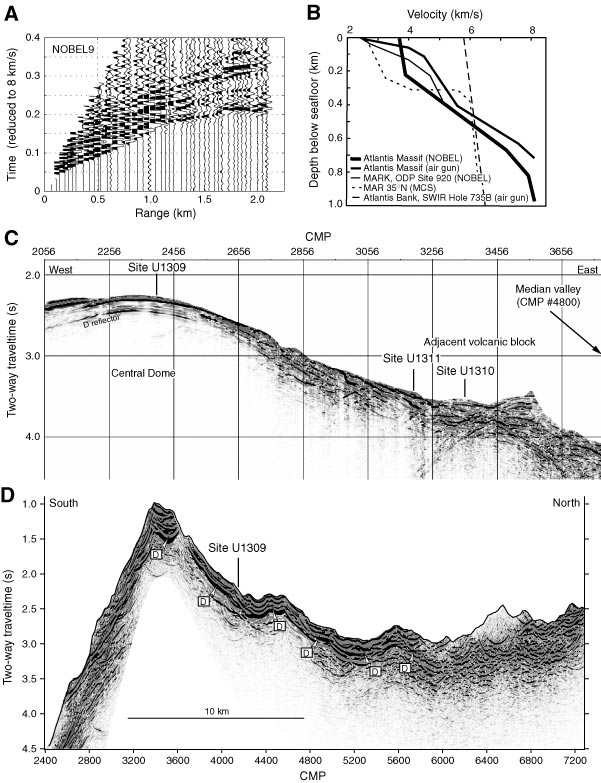
Figure F3. Seismic profiles indicate subsurface structure of the central dome of Atlantis Massif. A. Deep source refraction (Line NOBEL9; Fig. F2) recorded by an ocean bottom hydrophone shows arrivals from a high velocity body (8 km/s, assuming plane-layered structure) at very short range. B. Velocity gradient determined from refraction analysis at Atlantis Massif (from Collins et al., 2001) is similar to that determined near ODP Site 920, where serpentinized peridotite was recovered. The gradient near Hole 735B, where only gabbro has been recovered, is not as great. C. A portion of multichannel seismic (MCS) Line Meg-10 across the Central Dome. CMP = common midpoint. D. MCS Line Meg-4, along the strike of Atlantis Massif. MCS data were collected by the Ewing (EW-0102) in 2001 using a 10 gun array with 3100 in3 (51 L) capacity. Shot spacing was 37.5 m. Canales et al. (2004) processed the data by common midpoint (CMP) gathers, deconvolution, normal moveout correction, dip moveout correction, and stacking. In addition, the record section in D has been time migrated. The reflector labeled "D" is recognized by Canales et al. (2004) below much of the domal surface. SWIR = Southwest Indian Ridge, MARK = Kane Fracture Zone.